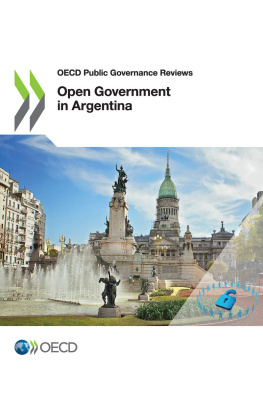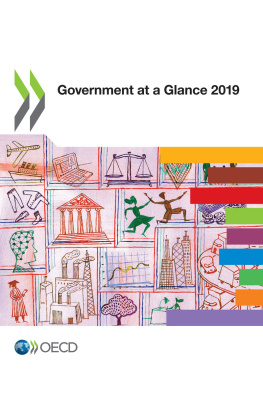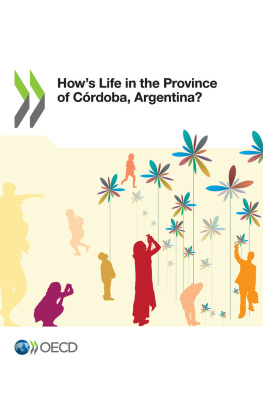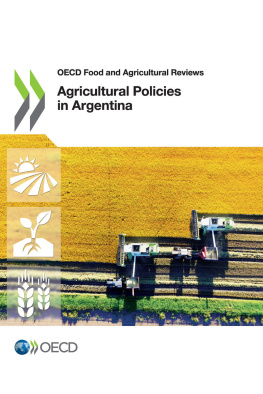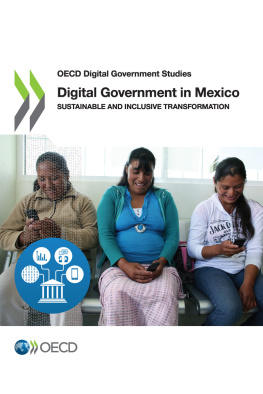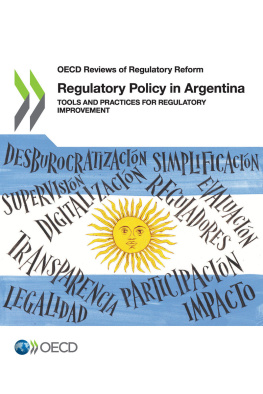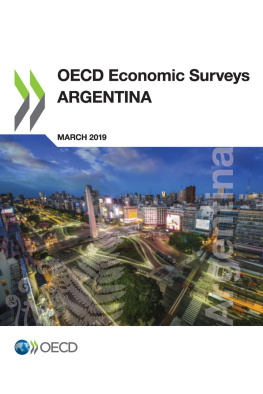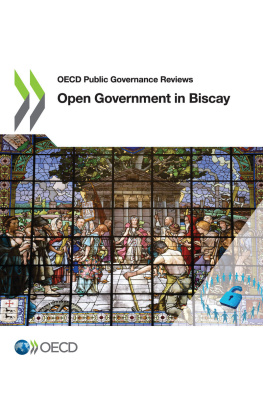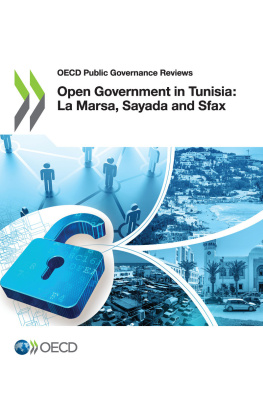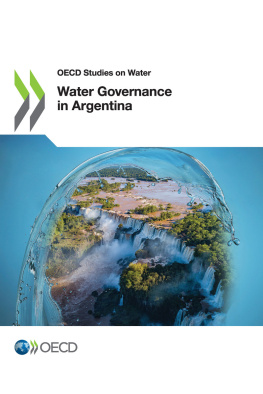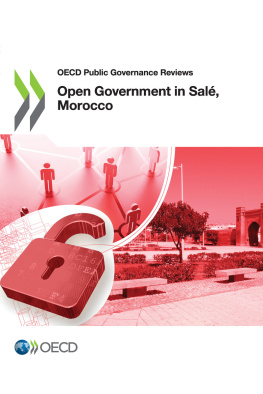OECD - Open Government in Argentina
Here you can read online OECD - Open Government in Argentina full text of the book (entire story) in english for free. Download pdf and epub, get meaning, cover and reviews about this ebook. year: 2019, publisher: OECD Publishing, genre: Politics. Description of the work, (preface) as well as reviews are available. Best literature library LitArk.com created for fans of good reading and offers a wide selection of genres:
Romance novel
Science fiction
Adventure
Detective
Science
History
Home and family
Prose
Art
Politics
Computer
Non-fiction
Religion
Business
Children
Humor
Choose a favorite category and find really read worthwhile books. Enjoy immersion in the world of imagination, feel the emotions of the characters or learn something new for yourself, make an fascinating discovery.
Open Government in Argentina: summary, description and annotation
We offer to read an annotation, description, summary or preface (depends on what the author of the book "Open Government in Argentina" wrote himself). If you haven't found the necessary information about the book — write in the comments, we will try to find it.
OECD: author's other books
Who wrote Open Government in Argentina? Find out the surname, the name of the author of the book and a list of all author's works by series.
Open Government in Argentina — read online for free the complete book (whole text) full work
Below is the text of the book, divided by pages. System saving the place of the last page read, allows you to conveniently read the book "Open Government in Argentina" online for free, without having to search again every time where you left off. Put a bookmark, and you can go to the page where you finished reading at any time.
Font size:
Interval:
Bookmark:
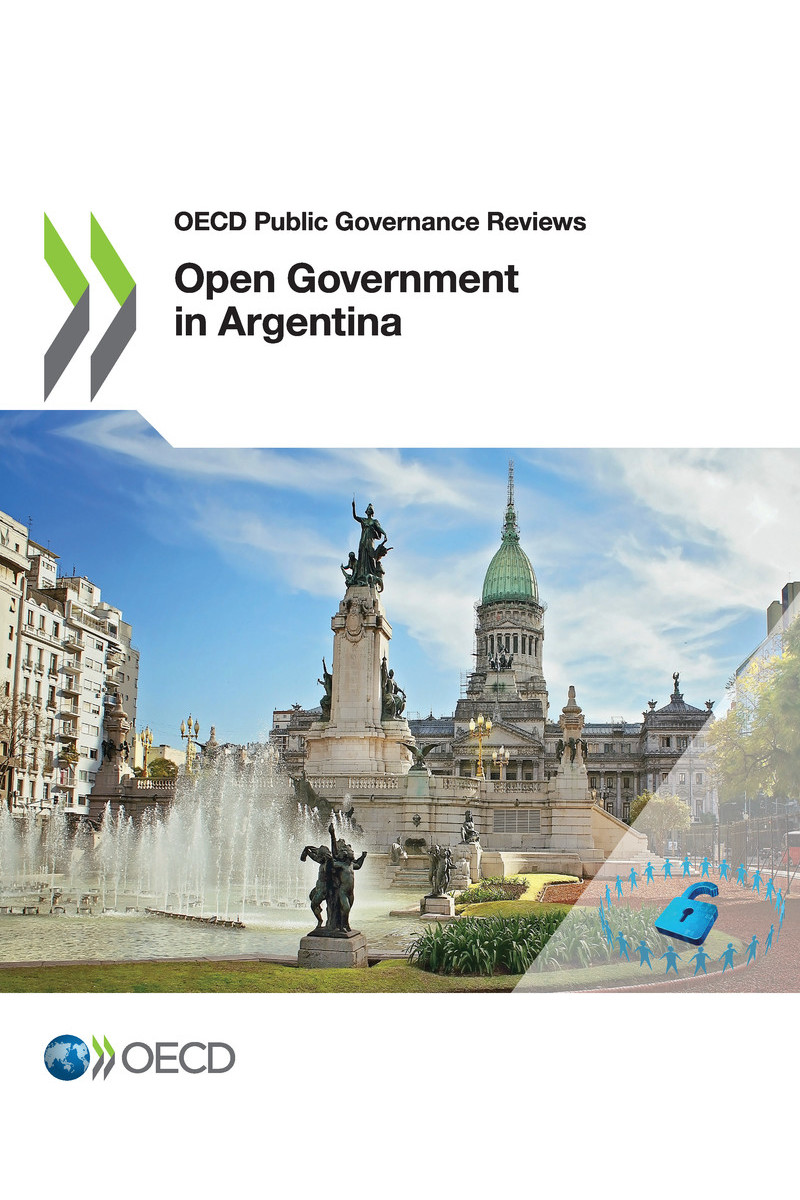
OECD (2019), Open Government in Argentina , OECD Public Governance Reviews, OECD Publishing, Paris, https://doi.org/10.1787/1988ccef-en .
Open government is a culture of governance that promotes the principles of transparency, integrity, accountability and stakeholder participation in support of democracy and inclusive growth. It represents a changed understanding of the role of the state in a modern society. Countries around the world increasingly acknowledge that open government can improve government efficiency and effectiveness, while bringing the administration and its officials closer to citizens.
Recognising these benefits, Argentina has launched ambitious and innovative open government initiatives across the country. By involving all branches of power and levels of government, Argentina is moving towards what the OECD calls an open state.
This OECD Open Government Review of Argentina analyses the current state of open government in the country. It examines Argentinas open government policies and initiatives against the principles of the OECD Recommendation of the Council on Open Government (2017), the first internationally recognised legal instrument in this area. As the first country to be assessed against the Recommendations ten provisions, Argentina will contribute to developing the methodology and set an ambitious baseline for future country reviews.
While it has made significant progress in open government, Argentina now needs to institutionalise these reforms and practices, to ensure their impact and long-term sustainability. In addition, Argentina should consider developing a whole-of-government framework for open government to provide a clear direction to the entire public sector and clarify priorities and goals for all stakeholders.
The Review starts by analysing the context for open government reforms in Argentina (Chapter 1). It then provides recommendations to strengthen the policy framework (Chapter 2) and the legal and regulatory framework (Chapter 3) for open government. It analyses ways to ensure the effective implementation of open government reforms (Chapter 4), the governments efforts to build a monitoring and evaluation system for open government (Chapter 5), and citizen and stakeholder participation practices (Chapter 6). At the request of the Government of Argentina, the Review puts a particular focus on the multilevel governance of open government and on the countrys progressive move towards an open state (Chapter 7). It concludes with an integrated analysis of digital government and open government practices (Chapter 8).
The Review was prepared under the auspices of the OECD Public Governance Committee, as part of its broader engagement with Argentina, which currently includes three other policy reviews in the areas of digital government, integrity and regulatory policy. Together these reviews provide an integrated set of recommendations to support Argentinas public sector modernisation efforts.
The OECD Secretariat wishes to express its gratitude to all those who made this Open Government Review possible, especially the Government of Argentina. Throughout the process, the government has shown great dedication and commitment, including by mobilising all relevant stakeholders. In particular, the OECD would like to thank the team of the Government Secretariat of Modernisation in the Office of the Chief of Cabinet of Ministers, headed by Andrs Ibarra. Special thanks go to Rudi Borrmann, Undersecretary for Public Innovation and Open Government as well as Carolina Cornejo, Director for Open Government, and her predecessor Natalia Carfi, for their continuous support. The Review team also wishes to acknowledge the important contributions by Vernica Ferrari, Antonella Guidoccio, Lucas Gamarnik and Nuria Franco.
The OECD would like to thank the respondents to the different questionnaires that allowed the evidence base for this review to be built. Overall, 24 ministries submitted their answers, as well as 15 provinces and 6 institutions from the other branches of power and independent public institutions. During the fact-finding missions, the OECD conducted interviews with more than 50 institutions from the executive, the judiciary, the legislature, independent public institutions and non-governmental actors, including a wide range of civil society organisations and academics. These in-depth interviews were instrumental in further improving the OECDs understanding of the Argentinian context and helping to recommend courses of action that reflect local and sectoral priorities.
The team also expresses its appreciation to representatives from the Provinces of Santa Fe and Mendoza, as well as from the Autonomous City of Buenos Aires who kindly received the OECD Secretariat during the second fact-finding missions. The OECD would especially like to thank the Governor of Santa Fe, Miguel Lifschitz, Diego Gismondi and his team, as well as lvaro Herrero, Maricel Lonati and the entire team in the government of CABA. The OECD would further like to extend its gratitude to the team in charge of open government in the Province of Mendoza, especially Ulpiano Leandro Surez.
This Review would not have been possible without the important contribution of the Peer Reviewers, who shared their extensive country-based knowledge and experience during the process:
Canada: Jaimie Boyd, Director of Open Government, Office of the Chief Information Officer, Treasury Board of Canada Secretariat, and Sarah MacLeod, Senior Project Officer, Office of the Chief Information Officer, Treasury Board of Canada Secretariat.
Font size:
Interval:
Bookmark:
Similar books «Open Government in Argentina»
Look at similar books to Open Government in Argentina. We have selected literature similar in name and meaning in the hope of providing readers with more options to find new, interesting, not yet read works.
Discussion, reviews of the book Open Government in Argentina and just readers' own opinions. Leave your comments, write what you think about the work, its meaning or the main characters. Specify what exactly you liked and what you didn't like, and why you think so.

